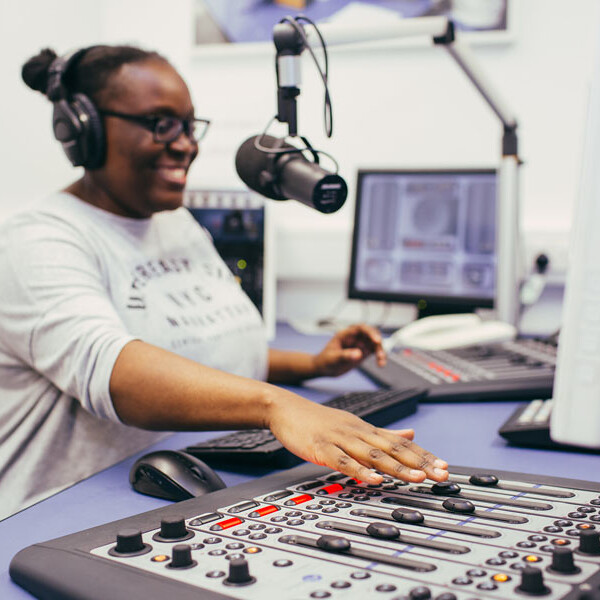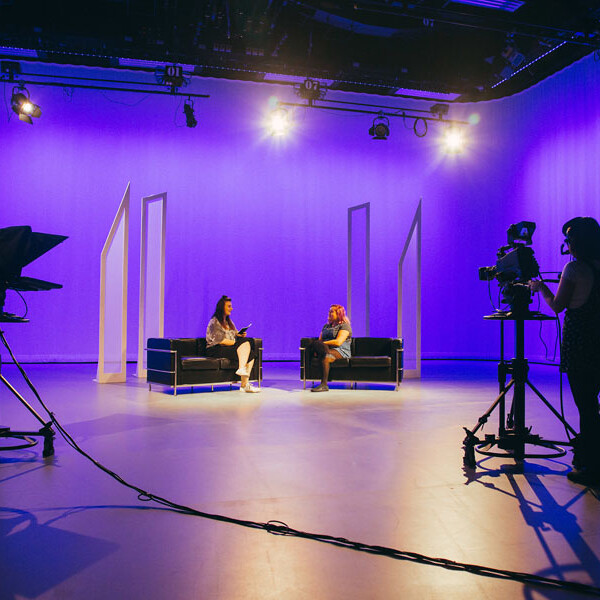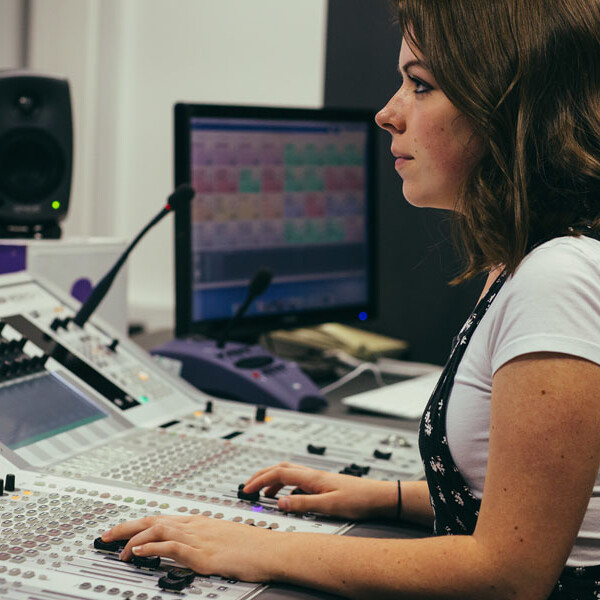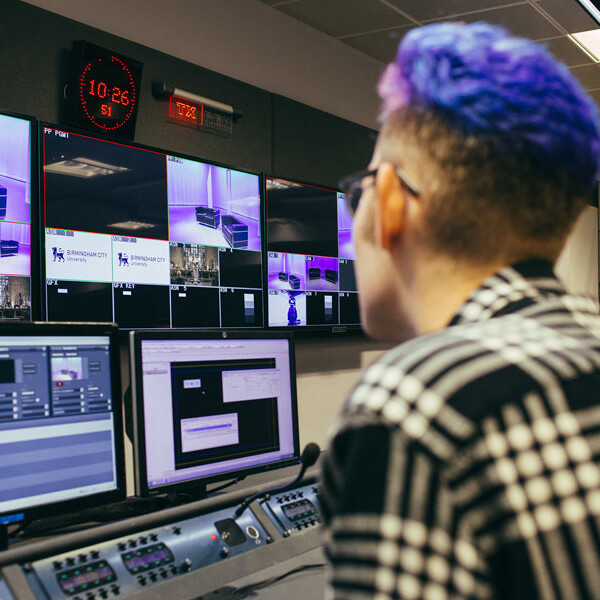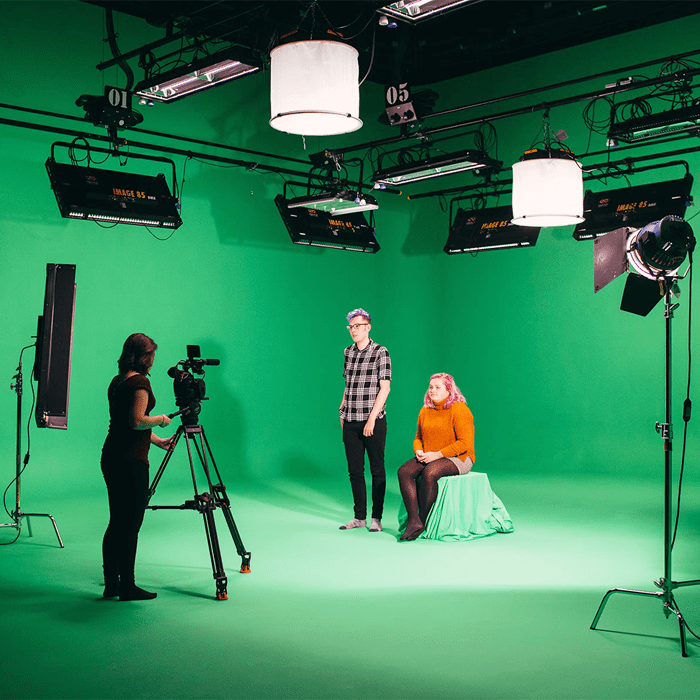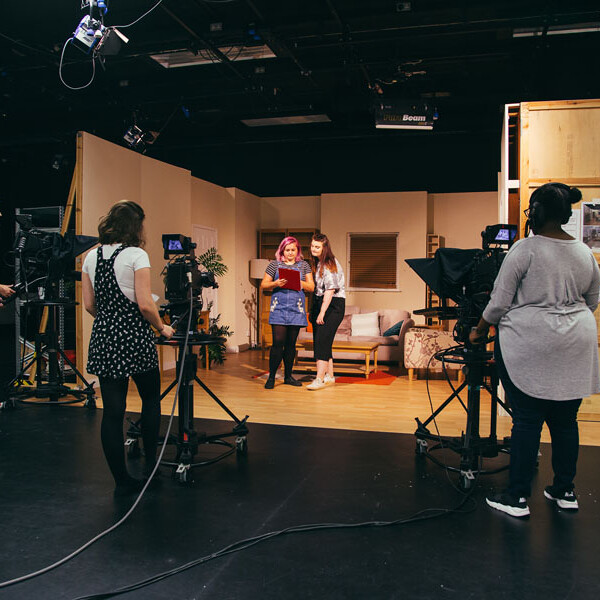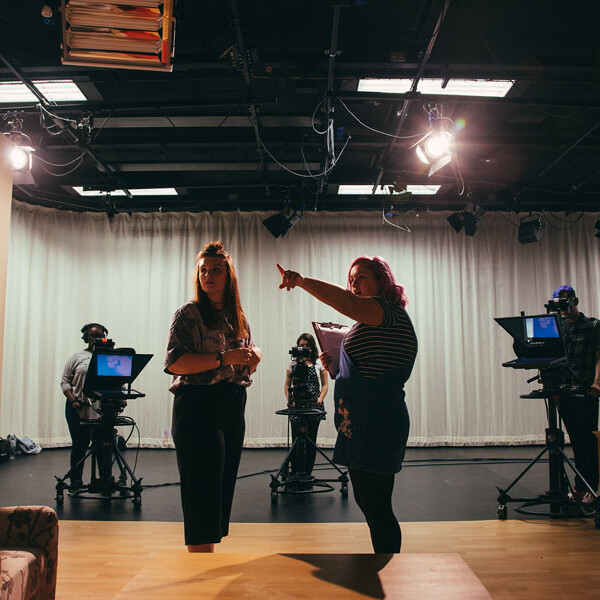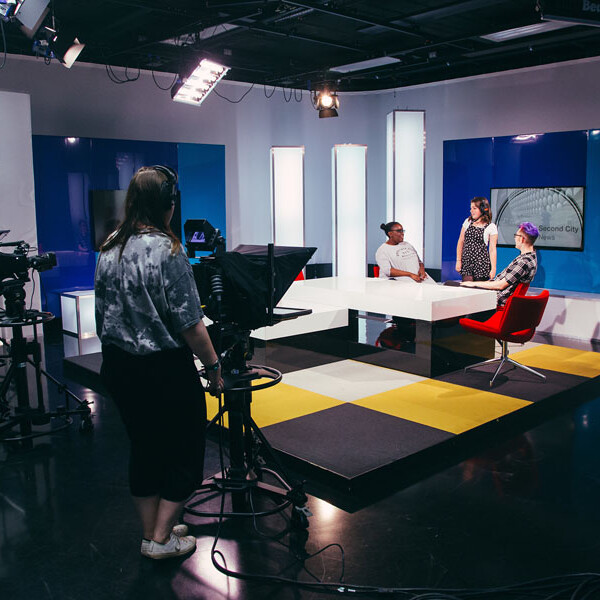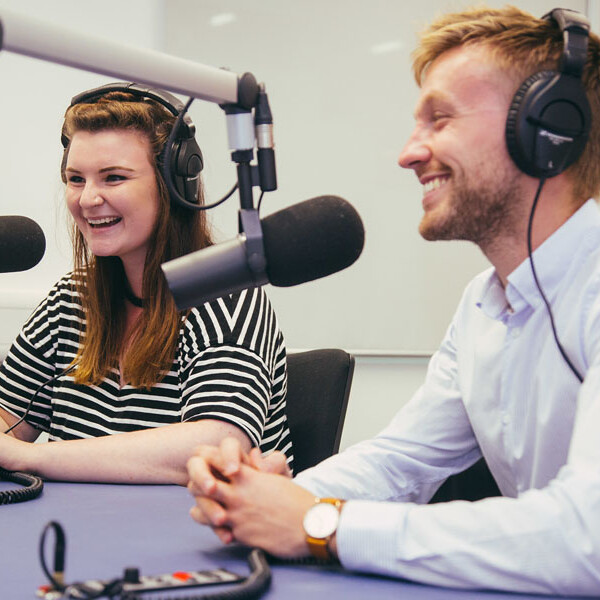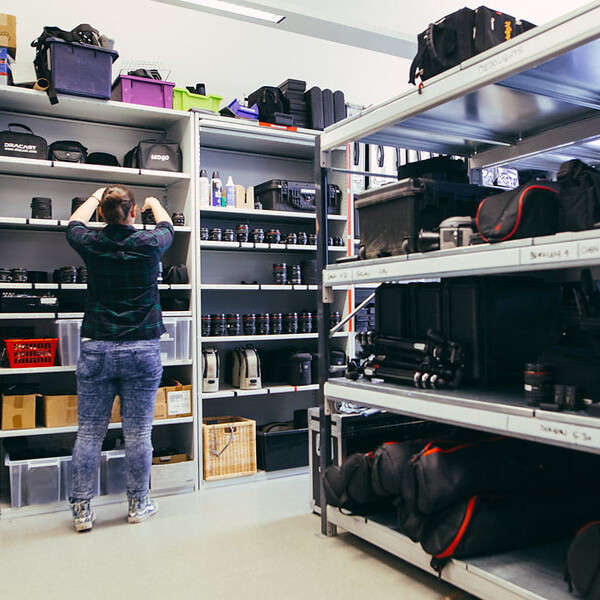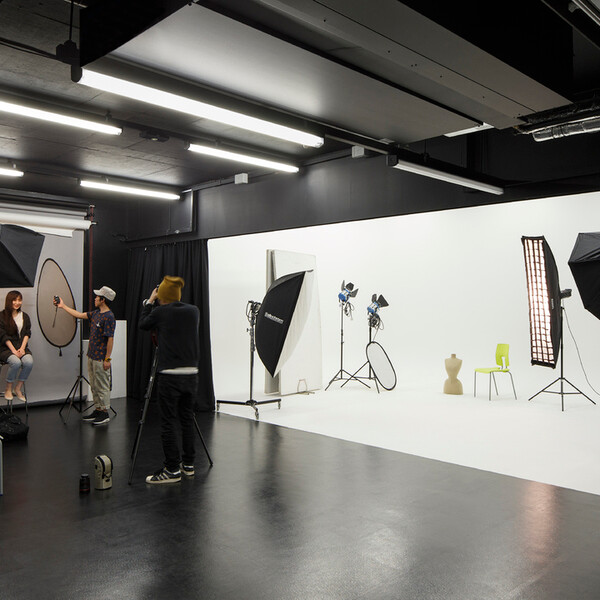
Data Journalism - MA / PgCert
Currently viewing course to start in 2025/26 Entry.
The MA in Data Journalism is a cutting-edge course designed to give you the interactive storytelling skills needed to work within a growing number of jobs in the media and beyond....
- Level Postgraduate Taught
- Study mode Full Time/Part Time
- Award MA / PgCert
- Start date September 2025
- Fees View course fees
- Subject
- Location City Centre
This course is:
Open to International Students
Overview
Scholarships are available for this course. Find out more and apply now
The MA in Data Journalism is a cutting-edge course designed to give you the interactive storytelling skills needed to work within a growing number of jobs in the media and beyond.
The course has relationships with the Guardian, The Birmingham Dispatch and the BBC, as well as a number of other organisations covering broadcast, online and print data journalism, all of which are keen to bring in the skills that you will be developing on the course.
Studying under internationally renowned course leaders in a city with a vibrant cultural sector, and with access to a range of media organisations, you’ll learn exciting new skills in data journalism and interactive storytelling across a range of contexts, from mobile-first data journalism on social platforms, to practising data driven journalism within different newsroom contexts. Relationships with newspaper, magazine, online and broadcast organisations provide unique opportunities for students to build contacts and experience, and work on live projects.
What's covered in this course?
This practical course is designed to help you respond to work within a range of data journalism roles, from sourcing data, to investigating leads, and communicating your stories in new, engaging ways, in a range of newsroom contexts.
Under the guidance of award-winning journalists who have worked with organisations ranging from the BBC and The Bureau of Investigative Journalism to The Guardian and specialist magazines, you’ll develop a keen eye for a story, develop advanced data driven journalism techniques that help you establish the facts, find out how to work within a range of newsroom contexts and tell those stories across a range of platforms.
You’ll get access to some of the industry’s most respected journalists who are working in the field now, learn about the legal, commercial and ethical contexts surrounding the future of journalism, and you’ll have the opportunity to work with wider data communities as you make a name for yourself in your chosen sector. Previous students have worked with organisations including the BBC, ITV News, Bureau Local, The Guardian, FullFact and the European Data Journalism Network. You’ll have access to the facilities at BCU’s Parkside campus, including radio and TV studios, and audio and video editing suites.
You’ll have access to video and still cameras, audio recording equipment and mobile journalism kits to get out and capture the human side of the story too. You’ll be expected to find and report stories regularly, experimenting with new formats while exploring and testing the latest research into this exciting period in journalism’s development.
As the course progresses you will develop more specialist skills and connect with others already in the industry, building your reputation as you prepare to enter the industry. Graduates of the course have gone on to work as data journalists, data designers, digital editors and journalism consultants.
Professional Placement Year
This PGT course offers an optional professional placement year.
I honestly couldn't have done my job without the MA: I'm using R constantly and a lot of OpenRefine. The course taught me which sources I’d need to use to find data and how to accurately report what the figures mean.
Carmen Aguilar García, Data Journalist at The Guardian
Why Choose Us?
- Course leader Paul Bradshaw is a leading innovator in the field of online journalism. An experienced and practising journalist who works with the BBC data unit, he publishes the Online Journalism Blog, has authored a number of books about data journalism, and has a reputation as one of the most influential people in data journalism.
- The course has relationships with newspaper publishers and broadcast data teams both in the UK and internationally, a number of magazine brands covering both consumer and business media, and two online data operations in South America. The department is also part of Google’s News Lab University Network.
- This is the only course in the UK to be part of the Global Investigative Journalism Network, due to its excellence in the field.
- Birmingham is the base of the BBC's Data Unit as well as the BBC’s shared industry data team, the BBC Academy and BBC Three. Students regularly work with projects involving those teams.
- You’ll be involved in the annual Data Journalism UK conference, organised by Birmingham City University School of Media and the BBC Academy. It’s a chance to meet and learn from some of the country’s leading data journalists.
- BCU is home to the ‘Sir Lenny Henry Centre for Media Diversity’, an independent body drawing on the work and experience of media professionals and academics to track the progress of media diversity in the UK.
OPEN DAY
Join us for an Open Day where you'll be able to learn about this course in detail, chat to students, explore our campus and tour accommodation. Booking isn't open for this event yet, register your interest and we'll let you know as soon as booking goes live.
Next Event: 28 June 2025
Entry Requirements
Essential requirements
Applicants are normally expected to have a minimum of a 2:1 honours degree, or equivalent, in any subject.
The personal statement should outline your engagement with media production through experience and/or experimentation and consumption. Production experience and experimentation might include writing, video, photography and art, web design or coding, data visualisation, or audio. Consumption might include the publications, programmes, or journalists that you follow or would like to emulate, or particular stories that inspired you.
Applying with international qualifications
See below for further information on applying as an international student.
If you have a qualification that is not listed, please contact us.
Fees & How to Apply
UK students
Annual and modular tuition fees shown are applicable to the first year of study. The University reserves the right to increase fees for subsequent years of study in line with increases in inflation (capped at 5%) or to reflect changes in Government funding policies or changes agreed by Parliament. View fees for continuing students.
Award: MA
Starting: Sep 2025
- Mode
- Duration
- Fees
- Full Time
- 1 year
- £9,190 in 2025/26
- Full Time
- 18 Months (Professional Placement)
- £10,110 in 2025/26
Award: PgCert
Starting: Sep 2025
- Mode
- Duration
- Fees
- Part Time
- 1 year
- Show fees
- £1022 per 20 credits
- Year 1 - 60 credits
Fees for Part-time students
This course can be studied on a Part-time study basis. The cost per year of study is based on credit requirements for that year.
International students
Annual and modular tuition fees shown are applicable to the first year of study. The University reserves the right to increase fees for subsequent years of study in line with increases in inflation (capped at 5%) or to reflect changes in Government funding policies or changes agreed by Parliament. View fees for continuing students.
Award: MA
Starting: Sep 2025
- Mode
- Duration
- Fees
- Full Time
- 1 year
- £18,600 in 2025/26
- Full Time
- 18 Months (Professional Placement)
- £20,460 in 2025/26
Application deadlines
We advise you to apply early to allow sufficient time for you to prepare to start your studies in September. Please apply by Friday 18 July to allow time to arrange accommodation, student finance and visas where required.
Late applications will be accepted where places are still available, but please note that Welcome Week begins on Monday 15 September 2025, and teaching begins on Monday 22 September 2025. International students are invited to arrive from Monday 8 September 2025.
To find out more, see our application timeline.
Personal statement
You’ll need to submit a personal statement as part of your application for this course. This will need to highlight your passion for postgraduate study – and your chosen course – as well as your personal skills and experience, academic success, and any other factors that will support your application for further study.
If you are applying for a stand alone module, please include the title of the module you want to study in your Personal Statement.
Not sure what to include? We’re here to help – take a look at our top tips for writing personal statements and download our free postgraduate personal statement guide for further advice and examples from real students.
Course in Depth
MA modules
In order to complete this course you must successfully complete all the following CORE modules (totalling 180 credits):
Within the context of the increasing use of data within media organisations, Data Journalism aims to facilitate a flexible and adaptable skillset, including the use of ‘computational thinking’, that provides a basis for you to critically adapt to both new and existing data journalism techniques. The module provides practical skills within a range of frameworks applicable to the production practice routes of the award. It also provides a basis for the successful completion of the Master’s route project, and introduces potential avenues of practice-based inquiry for routes into PhD progression beyond.
The module begins by building applied understanding of data journalism techniques and issues, before exploring more specific practices around design, analysis and interactivity. These are closely aligned to the core assignment tasks. A range of newsgathering and storytelling techniques are explored, giving you the basis for initiating and developing contemporary data journalism projects within a professional context.
These techniques include core media production skills required for developing the basis for a masters level practical project. A mixed methods pedagogical approach is adopted, with lectures combined with hands-on workshops where students are supported in developing and reflecting on their own work within a contemporary context.
Work in this module links to the different core semester two modules and Work Placement module.
The module is intended to help you develop and consolidate your ideas for your MA Major Project. By providing a common module that comprises of all MA Media cohorts, Research in Practice aims to facilitate a shared skillset that aids the successful completion of the MA Major project, as well as the potential for routes into PhD progression beyond. It is also designed to encourage interdisciplinary discussions across MA awards.
This module builds key transferable core skills that are needed to work within a modern multiplatform media industry, including the ability to identify and communicate stories for specific audiences; to recognise story formats across multiple platforms along with their generic qualities; to plan and collect information needed for storytelling purposes (including interviews); to write for a range of platforms; and employ multiple media forms.
These skills will help the student develop employable skills in identifying, planning and executing storytelling projects across multiple platforms and media, including emerging formats.
A mixed methods pedagogical approach is adopted, combining lectures with hands-on workshops where students produce stories within their own professional contexts, exploring cycles of pre-production, production and post-production activities. Supplementary technical sessions provide specialist skills with particular media to an advanced technical level. Teaching builds towards an assessed project that demonstrates the application of editorial, creative and practical skills, alongside an evaluation which evidences a methodical and critical approach to all three stages of production.
Specialist journalism and Investigations aims to facilitate a flexible and adaptable skillset that provides a basis for students to critically adapt to any chosen field of reporting. It also provides a basis for the successful completion of the master’s route project, and introduces potential avenues of practice-based inquiry for routes into PhD progression beyond.
Increasingly, media workers and researchers are expected to be able to engage with an unfamiliar field, and interrogate large amounts of information. This module provides a framework to build the techniques for doing so, including an understanding of specialist and investigative reporting techniques as applied to a chosen field of interest (examples might include health, politics, education or culture) which is, as part of teaching and assessment, scoped and critically assessed for reporting opportunities.
A mixed methods pedagogical approach is adopted, with lectures combined with hands-on workshops where students are supported in developing and reflecting on their own work within a contemporary context.
Supplementary technical sessions may be required to provide specialist skills to a required professional standard. Work in this module links to the final project.
Law, Regulation & Institutions focuses on key areas of the law and regulatory systems as they relate to the media, as well as allowing you to research those institutions which are important sources of news. The module will examine the ethical, regulatory and legal constraints under which journalists work. It will look in detail at issues including defamation, contempt of court and various reporting restrictions, human rights law, including the conflict between rights to privacy and to freedom of expression and copyright. It will enable you to develop a critical understanding of the limitations imposed by law and regulation on reporting and also look at those areas of law that work to protect journalists. You will develop a critical perspective on key debates in media law and regulation. The module will also introduce students to the core institutions of public life, particularly in the fields of politics, criminal justice, education, health and social welfare and business. You will conduct your own research into these areas as sources of news.
The structure of the module will consist of lead lectures by academics and practitioners and workshop activities and discussions in which you will be encouraged to consider how the principles discussed in presentations will be practically applied within the context of your journalistic work. Readings and case studies will be available on Moodle as online resources.
The module will be assessed through a media law examination and a presentation on a given area of public life which may be in broadcast, online or mobile format.
The module is an opportunity to learn and critically reflect on the skills of collaboration by enabling you to create a research-informed interdisciplinary project with students from complementary disciplines, or with academic staff.
Collaboration is a vital employability skill within the Creative Industries and this module allows you to develop professional key interpersonal and communications skills, share knowledge and ideas, and engage in collective strategic planning, diagnostic analysis and peer support. Working in an interdisciplinary team will help you to learn beyond your own subject boundaries, which is central to the STEAM (Science, Technology, Engineering, Arts and Mathematics) philosophy of education and resembles work patterns within the creative industries.
In the module, you will produce an interdisciplinary and imaginative group project outcome supported by an in-depth critical evaluation.
Within this module framework, several kinds of collaborative opportunities are available. For example, your supervisor may set you a predetermined project to enable you to work with other students in a cross-course project; there may be opportunities for you to collaborate with staff on research projects; or your supervisor may engage you in a collaborative group brief with a professional client, community or agency.
The purpose of the module is to enable you to undertake a sustained, in-depth and theoretically informed research project exploring an area that is of personal interest to you. It is important that we can support you appropriately, so you will be guided towards choosing a research topic which is relevant to your discipline and in which your lecturers have expertise.
The outcome may take the form of a written dissertation or a practical outcome with accompanying reflective, critical and contextual material. The main consideration when choosing your topic is that it must be relevant to your programme and you should consider the relevance of this topic to your future academic or professional development.
PgCert modules
In order to complete this course a student must successfully complete all the following CORE modules (totalling 60 credits):
Within the context of the increasing use of data within media organisations, Data Journalism aims to facilitate a flexible and adaptable skillset, including the use of ‘computational thinking’, that provides a basis for you to critically adapt to both new and existing data journalism techniques. The module provides practical skills within a range of frameworks applicable to the production practice routes of the award. It also provides a basis for the successful completion of the Master’s route project, and introduces potential avenues of practice-based inquiry for routes into PhD progression beyond.
The module begins by building applied understanding of data journalism techniques and issues, before exploring more specific practices around design, analysis and interactivity. These are closely aligned to the core assignment tasks. A range of newsgathering and storytelling techniques are explored, giving you the basis for initiating and developing contemporary data journalism projects within a professional context.
These techniques include core media production skills required for developing the basis for a masters level practical project. A mixed methods pedagogical approach is adopted, with lectures combined with hands-on workshops where students are supported in developing and reflecting on their own work within a contemporary context.
Work in this module links to the different core semester two modules and Work Placement module.
Specialist journalism and Investigations aims to facilitate a flexible and adaptable skillset that provides a basis for students to critically adapt to any chosen field of reporting. It also provides a basis for the successful completion of the master’s route project, and introduces potential avenues of practice-based inquiry for routes into PhD progression beyond.
Increasingly, media workers and researchers are expected to be able to engage with an unfamiliar field, and interrogate large amounts of information. This module provides a framework to build the techniques for doing so, including an understanding of specialist and investigative reporting techniques as applied to a chosen field of interest (examples might include health, politics, education or culture) which is, as part of teaching and assessment, scoped and critically assessed for reporting opportunities.
A mixed methods pedagogical approach is adopted, with lectures combined with hands-on workshops where students are supported in developing and reflecting on their own work within a contemporary context.
Supplementary technical sessions may be required to provide specialist skills to a required professional standard. Work in this module links to the final project.
Law, Regulation & Institutions focuses on key areas of the law and regulatory systems as they relate to the media, as well as allowing you to research those institutions which are important sources of news. The module will examine the ethical, regulatory and legal constraints under which journalists work. It will look in detail at issues including defamation, contempt of court and various reporting restrictions, human rights law, including the conflict between rights to privacy and to freedom of expression and copyright. It will enable you to develop a critical understanding of the limitations imposed by law and regulation on reporting and also look at those areas of law that work to protect journalists. You will develop a critical perspective on key debates in media law and regulation. The module will also introduce students to the core institutions of public life, particularly in the fields of politics, criminal justice, education, health and social welfare and business. You will conduct your own research into these areas as sources of news.
The structure of the module will consist of lead lectures by academics and practitioners and workshop activities and discussions in which you will be encouraged to consider how the principles discussed in presentations will be practically applied within the context of your journalistic work. Readings and case studies will be available on Moodle as online resources.
The module will be assessed through a media law examination and a presentation on a given area of public life which may be in broadcast, online or mobile format.
Download course specification
Download nowThe MA is completed full time across three semesters covering one year. The first semester focuses on a broad range of skills: you will be introduced to data gathering techniques, computer assisted reporting, and interactivity. You will also explore how to tell stories across different platforms using a range of media, including text, audio, video and visual journalism. You will also be developing an understanding of different research methodologies.
You’ll benefit from a blend of academic learning and practical application, exploring and applying the latest industry and academic research on cutting edge newsgathering, production and distribution techniques. Alongside this you will develop essential understanding of the legal and ethical contexts surrounding modern journalism.
In the second semester you explore data journalism in more depth, developing more advanced coding skills for finding and telling stories, alongside investigation skills and an understanding of law, regulation and security.
The final semester sees you developing a project or dissertation to build your reputation as a practitioner in your field. Previous examples have ranged from live working news websites and documentaries to ebooks, investigations, broadcast packages and portfolios of work for clients.
The PGCert version of the course consists of 60 credits of study completed across three semesters covering 12 months. The credits are obtained on three modules: Data Journalism in semester 1, and both Specialist Journalism, Investigations and Coding and Law, Regulation and Institutions in semester 2, with deadlines for those staggered across semester 2 and a final summer semester. This allows students to focus on building cutting edge skills in data journalism and investigation alongside their current employment.
Classroom projects
Examples of classroom activities you will be involved in include:
- Data-driven investigations that put a human face and establish the facts on topical issues
- Live newsrooms within various contexts, from online-only to broadcast newsrooms with associated online presence
- Experimentation with new forms of storytelling, from virtual reality and bots to interactivity and new social media platforms
Student stories
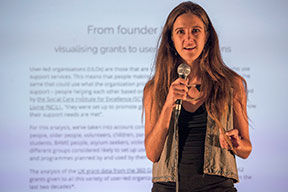
Victoria Oliveres
Scooped a £4000 prize in the 360 Giving data visualisation competition and now working as a data journalist with El Diario.
"As part of a competition launched by 360Giving I built a data visualisation that showed themes, amounts and organisations funded by grant makers. My tutor Paul shared the competition details and he’s always encouraging us to try new things, so I thought it would be a good way to practise and develop some of the visualisation skills we’ve learned. When my work was selected as one of the winners I felt so happy and euphoric! I couldn't believe it as I wasn't an expert in this field and was awarded £4000!"
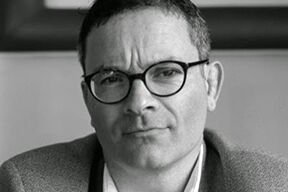
Jonny Jacobsen
Part of Jonny’s final project was published in the Royal Statistical Society’s magazine, Significance
"I wrote a first draft during my two-week RSS work placement in London and developed it further over the summer, interviewing key sources in London, Cardiff and Edinburgh. The main article ran in the October issue of the RSS magazine, Significance. I also published a separate piece in The Daily Mirror on some scandalous British Coal memos I found in the National Archives."
Employability
The course focuses on developing graduates at the cutting edge of contemporary professional practice, with a critical knowledge of the field leading practical application.
In addition to specific technical skills, students will also develop highly employable qualities in adapting to new technologies, and work towards building their contacts and reputation in the field. Opportunities to work with industry clients often lead to employment or the establishing of new enterprises.
Placements
Students on the MA can choose to undertake an industry placement, work with a client on a project or research entrepreneurship in practice. Previous students have undertaken placements or projects with clients including the BBC, The Guardian, the Open Knowledge Foundation, The European Data Journalism Network, the Royal Statistical Society, and the Centre for Investigative Journalism.
Links to industry
The course has strong links across all aspects of the media industry, including online, broadcast, magazines, newspapers, NGOs and new media startups. The school of media hosts the annual industry event Rethink Media, while Paul Bradshaw organises the annual Data Journalism UK conference in the city and is regularly invited to speak at industry events all over the world. The school’s global reputation in multiplatform journalism leads to frequent approaches from media organisations looking for cutting edge expertise or student input into new projects: examples range from Al Jazeera involving students in the design of a ‘news game’ and The Telegraph recruiting students to liveblog news events, to Centaur magazines inviting students to improve their social media performance and the BBC testing out new Snapchat content in class. Every year students attend a hackday at The Times, and one-off hackdays organised with the course include a music festival data hackday, transport data hackday and BBC election hackday.
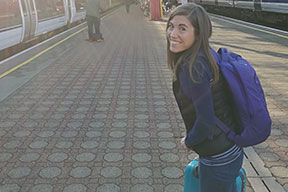
Our graduates
Carmen Aguilar Garcia
Carmen was employed as Sky News’s first data journalist in 2018 and now works for The Guardian.
“Honestly, I couldn't have done this job without the MA, because I'm using R constantly and a lot of OpenRefine. The course taught me which sources I’d need to use to find data and how to accurately report what the figures mean.
I chose to study at Birmingham City University because the course curriculum really stood out to me, along with the expertise and career path of the course leader. I would say the highlight was the industry events we attended and my advice to students would be to take advantage of the different events, hackdays, conferences and work placement opportunities.”
Facilities & Staff

Our Facilities
When you join Birmingham City University, the first thing you will notice is the high standard of our campuses.
With an investment of over £400 million across our buildings and facilities, we are committed to giving you the very best learning environment to help shape your experience.
State-of-the-art facilities
You will learn in our state-of-the-art facilities - including the £62m fully-digital Media Centre - located on the City Centre Campus. You will enjoy access to extensive studio and workshop space including four TV studios, six radio studios and broadcast-standard edit suites, as well as cutting-edge equipment and software.
Facilities include the largest TV floor of any university in the UK, a ‘green screen’ and a BOLT JR+ high-speed camera robot.
Our staff
Paul Bradshaw
Associate Professor
Paul Bradshaw leads both the MA in Data Journalism and the MA in Multiplatform and Mobile Journalism at Birmingham City University, and works as a consultant data journalist in the BBC England data unit. He is also the founder of the investigative journalism crowdsourcing site, Help Me Investigate, which was shortlisted in...
More about PaulProfessor Diane Kemp
Professor of Broadcast Journalism
Diane Kemp is Director of the Sir Lenny Henry Centre for Media Diversity, which launched in March 2020, and Professor of Broadcast Journalism in CoEM. Before joining the university, Diane worked in commercial and BBC radio before moving into BBC television news and current affairs. She was also Deputy Chair of the Broadcast Journalism Training...
More about DianeNina Robinson
Lecturer BA Hons Journalism courses, Foundation courses, and MA Mobile & Multiplatform Journalism
Nina Robinson delivers Mobile and Multiplatform Journalism lectures to Masters and BA Hons Journalism to undergraduate students at Birmingham City University, home to the Sir Lenny Henry Centre for Media Diversity for whom she has been a recipient of grant funding for research into diversity of senior leaders in Radio News and has also written for...
More about NinaDave Harte
Head of the College of English and Media (interim)
Dave Harte is Associate Professor in Journalism and Media Studies. His research is focused on local and community journalism, and he has published widely on these topics.
More about DaveDr Sarah Wood
Deputy Dean for Business, Law and Social Sciences
Sarah Wood holds degrees from JMU, the University of Liverpool, and Birmingham City University, where she gained her PhD. Her research interests are in feminism and science fiction. She has an article on Octavia Butler forthcoming in FEMSPEC and is working on further studies of Butler as well as of Nalo Hopkinson and slave narrative.
More about Sarah

